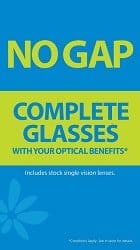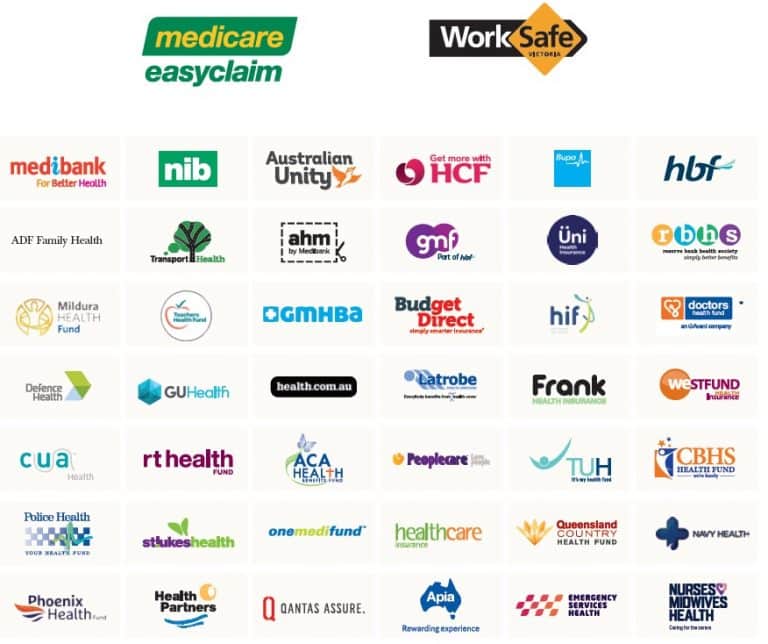Medicare,Bupa Optical,Health Funds,Openpay for your eyes


Medicare direct billed or done online are for the standard eye examinations for private and public patients. Health fund rebates can be for optical appliances as they are not covered by the medicare levy surcharge. Health Funds such as Bupa Optical can include eye health treatment for kids to aged care. Payment plans such as via Openpay are also available.in addition to the medicare eye test.
No-Gap health fund options exist, as do Government means-tested free glasses. Your Medicare card is required for direct or bulk billing and to check your eligibility. The card is usually green in colour, although interim cards are light blue and cards for Reciprocal Health Care Agreement visitors are light yellow. The Medicare Benefits Schedule (MBS) lists the services subsidised by the Australian Government, including eye doctors and some allied health professions. Health funds such as Bupa Health Insurance Optical and Bupa Dental cover these specifically, but there is a large variety in the scope of items covered and the size of rebates between funds.
The Bupa app allows a Bupa eye test claim from Bupa optical or Bupa medical providers by uploading a photo of your receipt and viewing your claim status and history. The Express Plus Medicare mobile app requires a myGov account linked to Medicare.HCF membership and NIB Health insurance apps give access and support for claiming queries regarding your policy are examples of apps health fund providers have available. As part of government reforms, Health Insurance prices, terms and conditions changed on April 1st 2019. The Australian Government regulates the eye test your optometrist can schedule. The private health industry rules regarding membership can vary between funds and, in some cases, will vary between states. At one time, the MBS index was negotiated between the Optometry profession and the Australian Government. Still, since the late 1990s, a standardised indexation commonly lower than the CPI and the other CPI of specific relevance to health has been applied.
WHO CAN USE THE BUY NOW AND PAY LATER INTEREST FREE OPENPAY SOLUTION?
Offering you the modern Openpay solution. Ask us about downloading the Openpay mobile app to allow your optometry bills to be paid over 2-6 months without interest, or we can do the paperwork for you.
101 The customer can download the open pay app
Method 2: An open pay account is created manually using the ‘New Plan’ function.
Openpay is a modern-day payment plan that enables appropriate care today, with payment over the selected period. Eligibility is for Australian residents only 18 years and over with valid ID, email, home address, mobile phone and active debit or credit card.
So buy now and pay later interest-free for certain services. This would generally be for non-Medicare services. Certain purchases are not discretionary but vital. Your correct spectacles and whatever type of contact lenses enable a good vision for life so you can see more and do more is worthwhile. While Afterpay has a strict, pay-in four, 8-week periods to pay back your purchases, Openpay allows more flexible repayment schedules and enables you to prioritise your eyes with pay later, interest-free payments managed in the app with flexible payment plans. Whether it’s a fresh look, new lenses, some out-of pocket expenses or necessary treatment, you can get it today with more time to pay.
Choose when you start and how often you pay. On the spot, approval means no more waiting—a spectacular way to pay for your spectacles.
From 18 months and perhaps beyond, depending on your circumstances. You can also reschedule payments as you go to avoid late fees. No interest or fees if you pay on time new way to pay for your eye care. Buy now. Pay later—zero interest with up to 12 months to pay.
YOUR HEALTH COVER AND EYE CARE

Major funds such as Cua, Bupa, Medibank, Budget Direct, Ahm, Hcf, Nib, Hbf, Medibank Private, Defence health, Australian unity, Cbhs and Bupa optical among others, lets you update your eyewear through the extras cover policies. These annual maximum limits reset each year for most funds, 1 January but some on the financial year or date of joining. Some funds, such as Police Health and Emergency Services Health – let you claim unused benefits for some services during the next year.

Certain waiting periods and other conditions can apply before benefits are payable. Prescription glasses and contact lenses for focusing the light that enters the eyes.
- Rebates on prescription sunglasses and prescription swimming goggles. Eye check-ups through medicare
- Hospital care, homes visits, office consultations.

Optical appliances are not covered by the medicare levy surcharge. Australian private health funds will pay benefits for prescription glasses and/or contact lenses purchased from most registered optical dispensers and eyewear stores, but not online optical stores. Benefit limits vary widely, ranging from $100 to over $600 on some premium policies. We can advise on your fund and policy rules. The health fund will cover prescription sunglasses in the vast majority of cases, including transitions lenses that change with the amount of light. However, non-prescription sunglasses are typically not included in extras cover. How your eyes work after the medical intervention may affect your cover and benefits. We can check your situation, e.g. HCF member’s guidelines.
Seeing your Optometrist is a smart choice for the lowdown on your eyes. Research showing that 20/20 vision from screenings means that children can have undetected vision problems by the eyestrain involved.
For adults as well, rather than being worried about the costs when covered by medicare (claim online), it is best to avoid vision problems by making time for regular eye tests. Regarding extras claims, e.g. Bupa optical would have no gap options for a Bupa member, but we have no gap options irrespective of the fund.
For major optical procedures, for example, cataract or eye lens surgery, hospital cover from a private health fund is required.
These services are typically only included in high-level hospital cover policies, which attract higher premiums than basic policies.
Private health insurance composes hospital cover to avoid public hospital waiting lists and meet private treatment and hospital services costs. Also, extras cover is for the non-hospital everyday services like dental, optical and physiotherapy.
Levels of cover and yearly limits vary between funds, and that some services only receive restricted cover, for example, laser eye surgery on the front of the eye or inside the eye. Unlike other insurances, the premium is not affected by age, health status or other risk factors.
This is called community rating and offers protection from higher premiums on subsequent claims.
The Department of Health has the most up-to-date information, and travel assistance sometimes can be availed from IPTAS.
MEDICARE EASYCLAIM AND HICAPS

Medicare rebates are not always allowed due to time frame restrictions often and were not often divulged due to privacy measures, but possible eligibility should be able nowadays to be confirmed. The schedule fee for eye focusing tests can vary if, for example, age-related macular degeneration is present, as assessing the fine detail of the blood vessels and the light-sensitive retina is required.

Medicare rebates for optometry services were frozen from 2015 until 2019, and often item numbers could not be accessed. If the Consumer Price Index had been applied to the Optometric Medicare Benefits Schedule since 1997, patients would be receiving over 50 per cent extra today in rebates for optometric consultations. From 1 July 2019, a 1.6 per cent increase in medicare would apply to optometry items on the MBS, ending the long-standing freeze on rebates for these items since November 2012.

Unlike the United States, Australia has Universal health cover (UHC) with public and private systems serviced by health professionals.
Approx 57% of Australians also choose to have private cover
The government also provides a subsidy for private insurance costs to families using a sliding scale based on income to encourage uptake of private insurance.
All pay a 2% Medicare levy surcharge tax. An additional levy of 1% is applied to high-income earners who choose not to take out private cover.
Pharmaceutical Benefits Scheme (PBS) caps the out-of-pocket cost of most medications for all Australians.
PUBLIC AND PRIVATE HOSPITAL COVER
The Medicare levy surcharge helps fund some of Australia’s public health system costs. The Medicare levy surcharge is (2% of your taxable income, sometimes reductions or exemptions). The Medicare levy surcharge (MLS) is levied on Australian taxpayers who do not have an appropriate private patient hospital cover and earn above a certain income. The MLS is designed to encourage individuals to take out private patient hospital cover and to use the private hospital system to reduce demand on the public system, e.g. cataract extraction.
TAX DEDUCTABLE OPTICAL EXPENSES
While the provider may tailor the test, the costs of getting your eyes tested can be reduced by the medicare and health fund rebate. Extras can be accessed via The Doctors health fund login. Deductions for the cost of buying prescription glasses or wearing contact lenses, even while working, are problematic as it’s a private expense relating to a personal medical condition. However, you may be able to claim a work-related deduction. E.g. safety spectacles, goggles, or equipment to alter the amount of light or protect the eyes both in front of and behind the coloured part of the eyes. You may be required to work outdoors and are exposed to the risk of eye damage from sunlight. Prescription sunglasses and anti-glare glasses if you wear contacts are advised.
